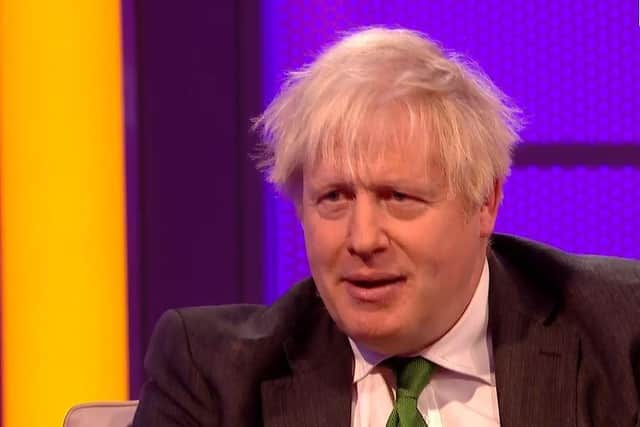Partygate: Rule breaches ‘obvious’ to Boris Johnson, partygate ‘lies’ inquiry says
The cross-party Privileges Committee said the Commons may have been misled multiple times as they set up a live showdown with the former prime minister for later this month.
Mr Johnson released a statement claiming the inquiry’s interim report showed he was being “vindicated” as he raised concern about investigator Sue Gray’s move to Sir Keir Starmer’s office.
Advertisement
Hide AdAdvertisement
Hide AdBut the committee said: “The evidence strongly suggests that breaches of guidance would have been obvious to Mr Johnson at the time he was at the gatherings.


“There is evidence that those who were advising Mr Johnson about what to say to the press and in the House were themselves struggling to contend that some gatherings were within the rules.”
It added: “The Director of Communications stated in a WhatsApp of 25 January 2022 to a No. 10 official in relation to the gathering of 19 June 2020 that ‘Haven’t heard any explanation of how it’s in the rules’.
“In a separate WhatsApp exchange with a No. 10 official of 25 January 2022 in relation to the gathering of 19 June 2020, the Director of Communications stated: ‘I’m struggling to come up with a way this one is in the rules in my head’, and in response to a suggestion that they describe the event as ‘reasonably necessary for work purposes’, ‘not sure that one works does it. Also blows another great gaping hole in the PM’s account doesn’t it?'”
The Privileges Committee said that it will explore evidence that Boris Johnson misled the House in a number of ways.
It said that these included telling the Commons on December 8 2021 that no rules or guidance had been broken in No 10 when Sue Gray and the police had already concluded that was not correct.
It also pointed to Mr Johnson’s failure to tell the House about his own knowledge of the gatherings where the rules or guidance had been broken.
It said MPs may also have been misled by Mr Johnson’s assertion that he relied upon repeated assurances that the rules had not been broken.
Advertisement
Hide AdAdvertisement
Hide AdBoris Johnson will give evidence to the Privileges Committee in the week beginning March 20 on the inquiry into whether he lied to Parliament, the committee said.
In a statement, the former prime minister said: “I am grateful to the committee for their work over the last ten months. I believe that their labours have helped establish the obvious truth.
“It is clear from this report that I have not committed any contempt of Parliament. It is also clear that what I have been saying about this matter from the beginning has been vindicated.
“That is because there is no evidence in the report that I knowingly or recklessly misled parliament, or that I failed to update parliament in a timely manner.
“Nor is there any evidence in the report that I was aware that any events taking place in No 10 or the Cabinet Office were in breach of the rules or the guidance.”
The Privileges Committee said that it will explore evidence that Boris Johnson misled the House in a number of ways.
It said that these included telling the Commons on December 8 2021 that no rules or guidance had been broken in No 10 when Sue Gray and the police had already concluded that was not correct.
It also pointed to Mr Johnson’s failure to tell the House about his own knowledge of the gatherings where the rules or guidance had been broken.
It said MPs may also have been misled by Mr Johnson’s assertion that he relied upon repeated assurances that the rules had not been broken.